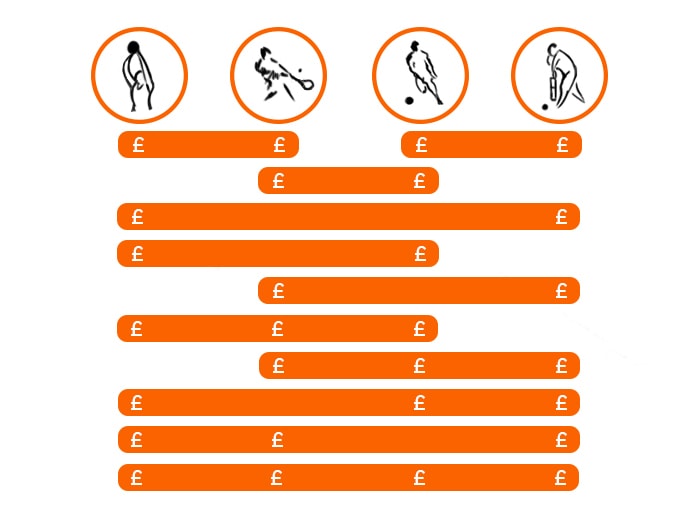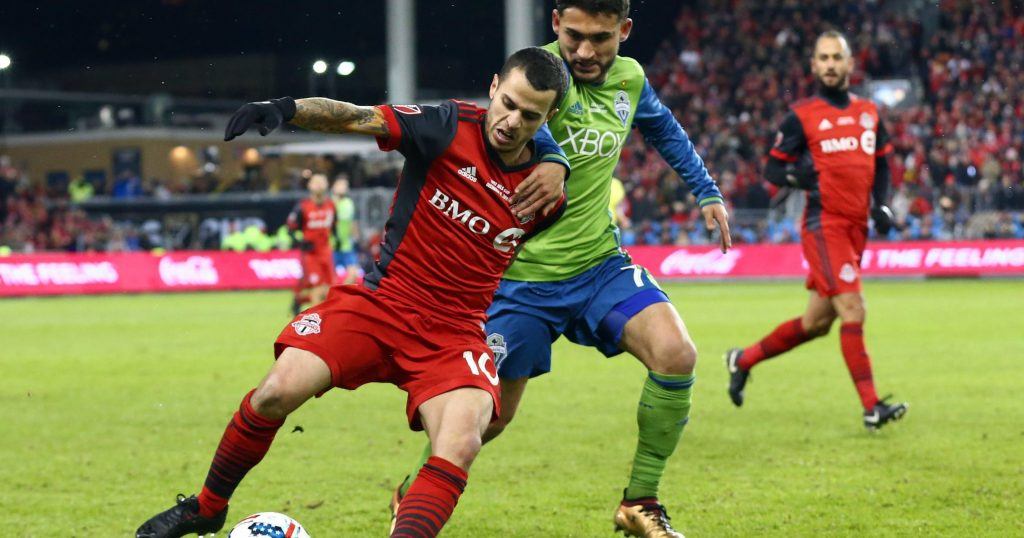Betting Terminology Explained
Betting Terms and Jargon Buster
The betting world can be a confusing place, especially with all the betting terms flying around. This handy jargon-buster guide can help you better understand some of the common betting terms, so you can join in with the punting-talk next time you’re at the races.

| Betting Term | Description |
| Accumulator | A bet involving more than one selection with the winnings from each selection going on to the next selection. All selections must be successful to get a return. |
| Ante-post | A bet on a race well in advance of the day of the race. |
| Back | A bet on a horse to win (or each-way). The opposite of lay, and the more traditional bet type. |
| Banker | A supposedly certain bet. |
| Bar | The lowest odds of horses not mentioned in the betting forecast ’20-1 bar’ means those not quoted are 20-1 or bigger. |
| Best Odds Guaranteed | A special offer whereby your bookmaker agrees to settle your bet at the starting price (SP) if it is greater than the early price you took when placing a bet |
| Betting exchange | A betting website whereby you are betting against other people, rather than against the bookmaker. |
| Canadian | A canadian consists of 26 bets involving 5 selections in different events. The bet includes 10 doubles, 10 trebles, 5 four-folds plus an accumulator. A minimum of two must win to guarantee a return |
| Cash out | Taking a payout offered by your bookmaker before the completion of a bet. |
| Co favourite | A horse who leads the market with one or more horses. |
| Dividend | The amount that a winning bet or placed horse returns for every £1 bet. Term often associated with Tote pools. |
| Drifter | A horse who finds its price getting bigger prior to the race beginning. |
| Duel forecast | A reverse forecast (or dual forecast) is a bet where the aim is to predict the winner and runner-up in either order. |
| Dutch | Backing two or more horses in a race, increasing your chances of finding a winner but essentially at shorter odds. |
| Each way | A bet where half the total stake is for the selection to win and half is for the selection to be placed. The bet will be settled differently depending on whether the horse wins or places. |
| Edge | A punters advantage in a bet. |
| Evens | A price of 1-1. Your stake brings equal winnings: e.g. £10 staked at evens wins £10 (total return £20). |
| Favourite | The shortest priced horse in the race, the market leader. |
| Fold | A fold represents the number of selections in an accumulator, a four-fold consists of 1 bet with 4 legs that all must win for a return. |
| Forecast | A bet where the aim is to predict both the winner and runner-up in a race. A straight forecast is the winner and runner-up in the correct order. |
| Goliath | A bet consisting of 247 bets involving 8 selections. The bet includes 28 doubles, 56 trebles, 70 four-folds, 56 five-folds, 28 six-folds, 8 seven-folds and an accumulator. A minimum of 2 of your selections must be successful to get a return. |
| Hedging | This involves placing a bet on opposing outcome to the punters original selected outcome in order to guarantee winnings of cut losses. |
| Heinz | A bet consisting of 57 bets involving 6 selections in different events. The bet includes 15 doubles, 20 trebles, 15 four-folds, 6 five-folds and an accumulator. A minimum of two of your selections must be successful to get a return. |
| In the frame | Another term for a horse who has finished in the places. |
| In-running | A bet placed during the race, as opposed to before the race begins. |
| Joint favourite | If two horses have the shortest odds in the betting, they are described as joint-favourites. |
| Jolly | A different term for the favourite in the market. |
| Lay | A bet on a horse not to win (or not to place). The opposite of backing a horse. |
| Longshot | A horse who appears to be unfancied in the market (20-1 shot etc). |
| Lucky 15 | A bet consisting of 15 bets involving 4 selections in different events. The bet includes 4 singles, 6 doubles, 4 trebles, and 1 fourfold. Only one selection must win for a guaranteed return. |
| Market Mover | A selection that changes in price significantly either way, by increasing in odds (drifting) or decreasing in odds (steaming). |
| Match betting | A technique employed by many by using fixed odds on the exchange market. The technique covers multiple outcomes either through in-play betting or by finding differences in bookmaker odds. By covering multiple outcomes say by backing Team X to win and when/if they go up, by laying Team X to win, returns are guaranteed whatever the result. |
| Monkey | Slang for £500. |
| Multiple | A bet that consists of multiple horses. This is a broad term that could refer to a simple accumulator or more complex bets like a Lucky 31. |
| Nap | The best bet of the day for a tipster. |
| Odds | The chance offered for a selection to win. Also known as price. |
| Odds compiler | A person who sets the odds offered by a bookmaker for any given race. |
| Odds-against | A price that is bigger than evens. Betting odds where the potential winnings are higher than the stake. |
| Odds-on | A price that is shorter than evens. Betting odds where the stake is higher than the potential winnings if the bet is successful. |
| On the nose | Turn of phrase used to describe a narrow winning margin, often photo-finish winner. May or may not have actually won by a nose. |
| Overround | The practice of factoring in a profit margin on the prices offered by a bookmaker. |
| Patent | A bet consisting of 7 bets involving 3 selections. Including a single on each selection, plus 3 doubles and 1 treble. Just one successful selection guarantees a return. |
| Permutations | Also known as combination bets. A permutation bet is a wager that involves a number of selections. |
| Place | Backing a horse to finish in the places. The number of places depend on the number of runners, with two places available for a five to seven runner race, three places for eight to 15 runners, and four places for handicaps with 16 runners or more. Extra place terms are often offered by bookmakers. |
| Pony | A slang term for £25. |
| Price | Often referred to as odds. The chance a horse has been given by the market to win the race. |
| Return | The amount of money to be returned to the person who placed a bet if it wins. |
| Round Robin | A series of three or more selections in 2-fold accumulators. A round robin means 3 selections in different races, in 3 doubles, 1 treble and 6 single stakes about bets. |
| Rule 4 | One of the most commonly invoked betting rules, dealing with deductions from winning bets in the event of any withdrawn runner(s) from a race. The rule applies to winning bets struck at prices (e.g. morning prices) laid before a withdrawal (other than ante-post bets, which are unaffected by Rule 4 (c) and to starting-price bets where, after a late withdrawal, there is insufficient time to re-form the market. The rate of deductions is in proportion to the odds of the non-runner(s) at the time of the withdrawal. |
| Score | A slang term for £20. |
| SP | Starting Price. The starting prices are the final odds prevailing at the time the race starts and are used to determine the payout to winning punters, unless a punter took a specified price at the time of placing the bet. |
| Spread Betting | Similar to the handicap betting system. If you back a team to cover the spread, so a team will lose bu no more than 5 points, or win by more than 6 points. |
| Stake | The amount of money you bet on a horse. |
| Steamer | A horse who has shortened in the market considerably. |
| Ton | Slang term for £100. |
| Tote | A type of bet frequently placed at a racecourse. You can back horses to win or place, and a dividend is paid out afterwards to winning bets as the bets all go into a pool. The tote also runs other bets such as the placepot and jackpots |
| Trixie | A bet consisting of 4 bets involving 3 selections. The bet includes 3 doubles and a treble. A minimum of two selections must be successful to get a return. |
| Void bet | This is a bet which is declared invalid. The stake is returned without deduction. |
| Yankee | A bet consisting of 11 bets involving 4 selections in different events. The bet includes 4 doubles, 4 trebles and an accumulator. A minimum of 2 of your selections must be successful to get a return. |

Horse Racing Betting Terminology Explained
Glossary of Terms for Horse Racing Betting The sport of horse racing and the associated betting both use a fair amount of jargon. If you want to be successful at horse racing betting then it pays to have an understanding of all the various terms used. There are many words and phrases used in sports betting that may not make sense until you understand what they mean. To help you with that, we have compiled the following glossary of sports betting terms as a useful reference.